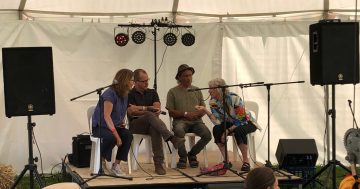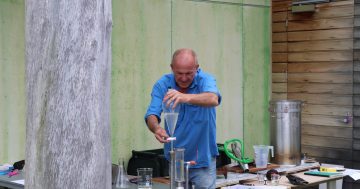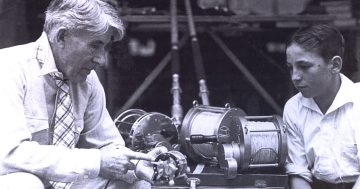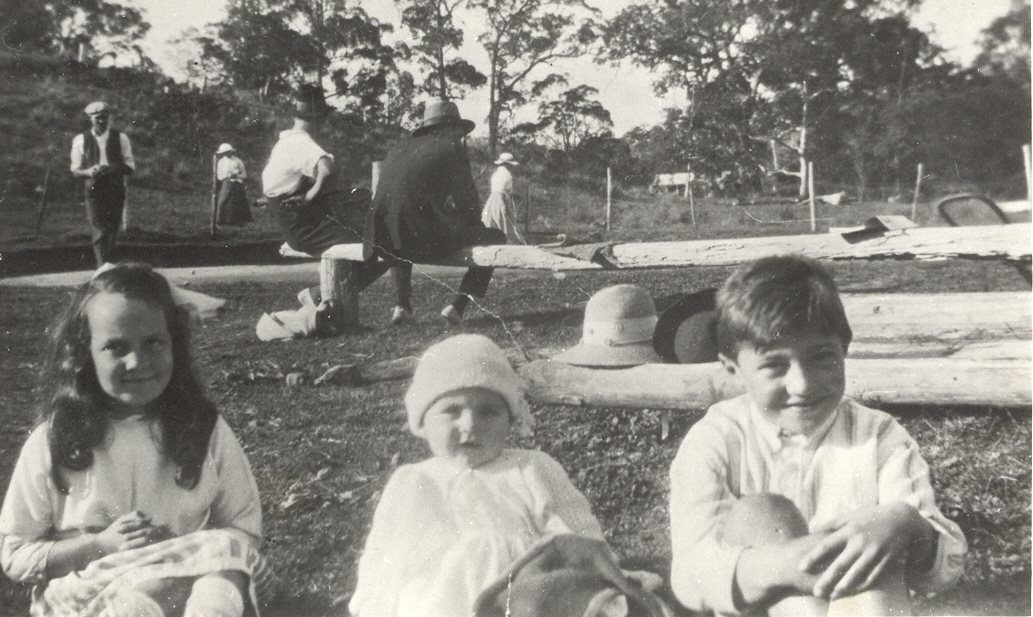
John Rheinberger’s father, Edwin, (right) circa 1922. Photo: Supplied.
John Rheinberger is a fifth-generation farmer in the Bega Valley whose great-great-grandfather arrived in the valley in March 1855.
His extensive records of the family history document how life has changed over the generations, and how tennis was such an important part of the social fabric. Mr Rheinberger was made a life member of the Merimbula Tennis Club on his 79th birthday on 18 November.
His great-great-grandfather came from the village of Frauenstein on the River Rhine. He took his wife and seven children down the river to Hamburg to get a ship to Cape Town, then Perth and Eden. He lost his wife, a daughter and a son to scurvy during the journey.
James Manning, manager of the company that owned the Kameruka Estate, decided to bring a shipload of Germans settlers to work for him. “That is why you have so many German names like Schaeffer in Bega Valley,” Mr Rheinberger said.
The women and children travelled by boat from Eden to Merimbula, then by bullock and dray to Bega. The men walked.
Mr Manning owned all the land from Bega Bridge down to the flat at Jellat. Some families went to work on the Kameruka Estate, while others like the Rheinbergers worked in the Bega area.
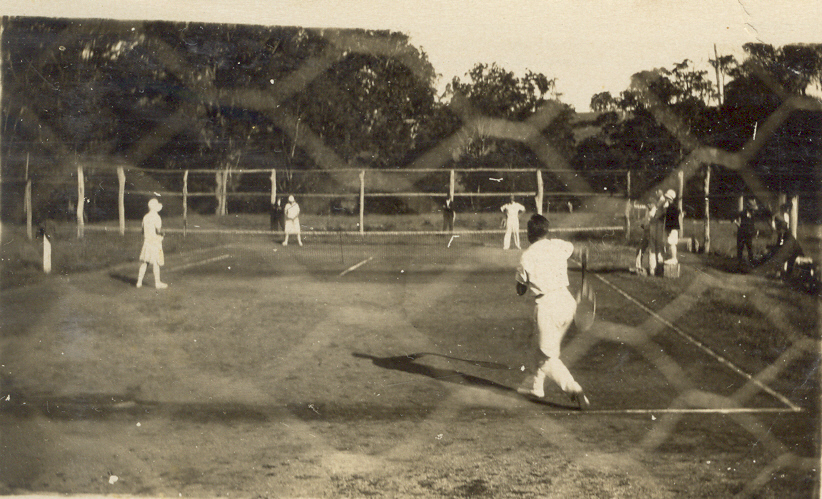
Playing tennis at the neighbouring Rheinberger farm Meringlo. Photo: Supplied.
“Some of the settlers had put their names down as vineyard workers, others as farmers and others as shepherds,” Mr Rheinberger said.
Mr Rheinberger’s great-grandfather, John, was one of the five children who survived the voyage from Germany. He and his brother Peter secured land in Buckajo.
Under the Robertson Land Act of 1865, the government told large landowners they could only retain 23,000 acres they selected and must give up their remaining leased land so people could settle.
“I think they paid a pound per acre,” Mr Rheinberger said.
His great-grandfather bought a 360-acre property, Highfield Farm. It is the family property that Mr Rheinberger farms today.
“In those days you had a dance once a month, usually on the weekend of the full moon so you could use the moon to guide the horse and buggy home,” Mr Rheinberger said.
People only married into their own religion. For the Rheinberger family that was Catholic.
A lot of Irish had settled in Australia due to the Irish potato famine. His great-grandfather married a Heffernan girl.
They had 11 children. Their 10th child, Thomas Anthony, was Mr Rheinberger’s grandfather.
Thomas Anthony had two children. One of them, Edwin Thomas, was Mr Rheinberger’s father.
All his family are buried in Bega Cemetery. “Nobody really went outside the Bega Valley until the 1960s and St Patrick’s was the main Catholic church, so they were all buried there.”
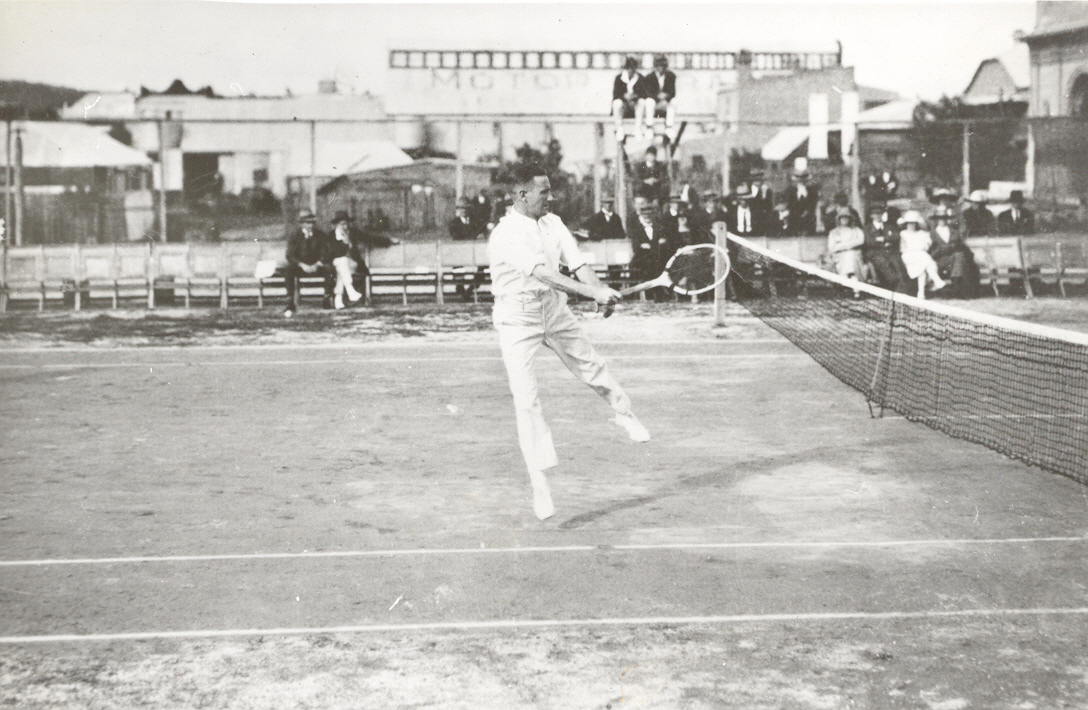
Unknown person playing at the Bega Tennis Club in the early 1920s. Photo: Supplied.
Often the farms had a tennis court. Mr Rheinberger has a photo of his father, Edwin, as a young boy on the tennis court at the neighbouring Rheinberger farm, and a photo of Bega’s first tennis court from the early 1920s.
“A Rheinberger won the first Easter tournament that was run in 1923,” Mr Rheinberger said.
His father married Aileen Kelly.
“I think they met at a tennis tournament,” he said. “So, my grandfather married the girl next door and Dad married a Kelly girl from Tanja.”
His father won the district championships 25 consecutive years, and Mr Rheinberger’s twin brother Robert won it the following four years.
“Robert went overseas to play professionally in 1968, and then I won 13 of the next 20-odd championships, so I was only half as good as them,” Mr Rheinberger said.
His father Edwin could have played overseas but because of the war and as an only child, he had to stay on the farm to produce food.
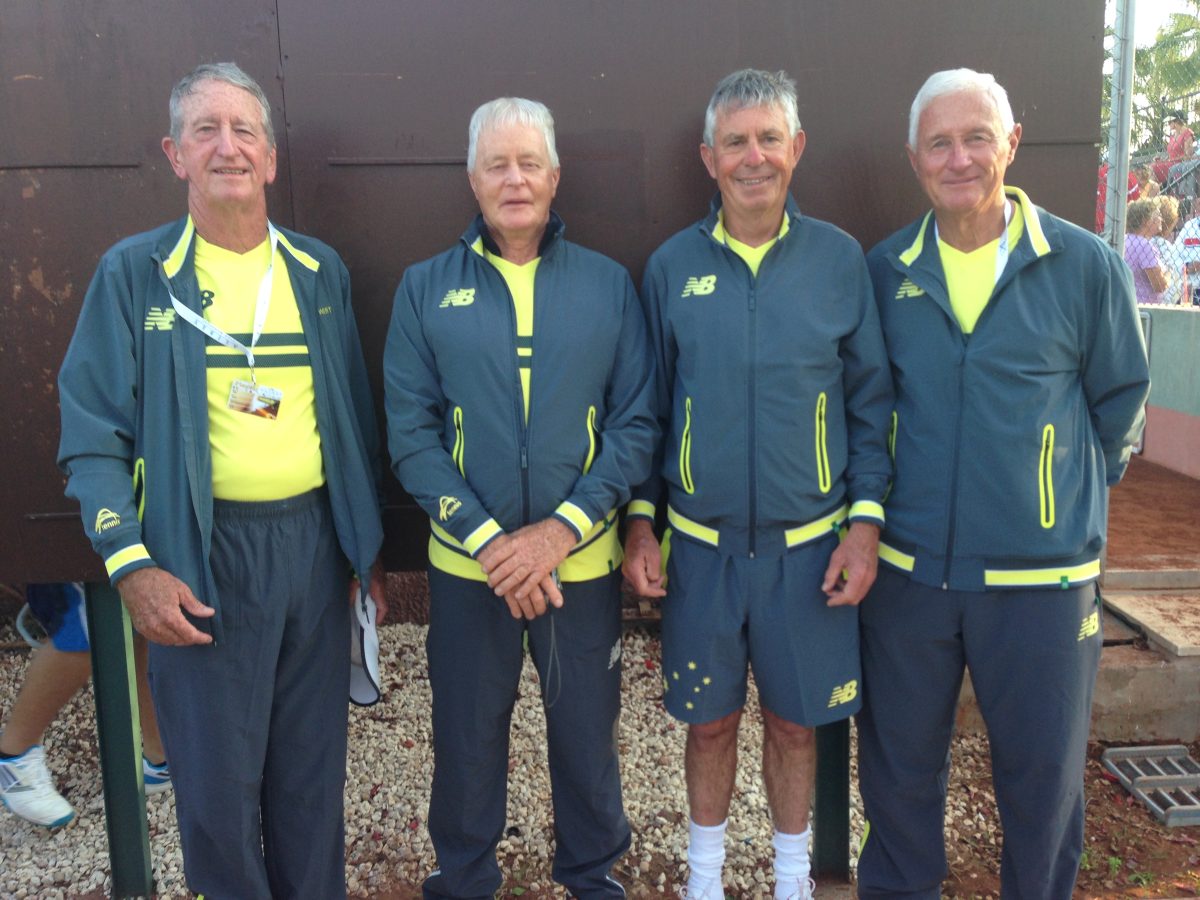
The Australian 65 Men’s Tennis team in Turkey in 2014 – Ray West, Neville Rodwell, Wayne Hassett and John Rheinberger. Photo: Supplied.
Tennis has taken Mr Rheinberger around the world. He and his wife travelled around Europe in a Ford Transit van for three months in 1976, when his brother was trying to qualify for Wimbledon.
He competed in a seniors’ European tournament in Austria in 2011 and represented Australia in the 2014 world championships in Turkey.
After he retired, he wanted to play more tennis, so he joined the Merimbula Tennis Club 15 years ago.
“I drove 50 kilometres each way twice a week to play,” he said.
He played in the Saturday District Competition until 2018 and organised that competition for some 25 years.
“That was the bread and butter of tennis, people travelling the distance to play,” Mr Rheinberger said.
Tennis was heavily impacted by people working in the major supermarkets on weekends.
Bega Tennis Club fizzled out two or three years ago as numbers shrunk and nobody wanted to join the committee. Mr Rheinberger had also been a life member of that club which he had joined in 1959, aged 14.
He looks forward to competing in the 80-plus category next year.







